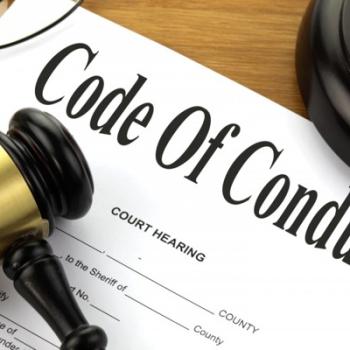The Big Questions series
What is Sin? It depends on who you ask. There are many definitions of sin in Christianity today. This series will delve into this question in multiple parts.
The Oxford Language dictionary defines it as: “an immoral act considered to be a transgression against divine law.”
Merriam-Webster dictionary defines it as: “an offense against religious or moral law. : an action that is or is felt to be highly reprehensible.”
A Wikipedia article about sin thoughtfully says: “In a religious context, sin is a transgression against divine law or a law of God. Each culture has its own interpretation of what it means to commit a sin. While sins are generally considered actions, any thought, word, or act considered immoral, selfish, shameful, harmful, or alienating might be termed “sinful”.”
Sin is described in the Bible as transgression of the law of God (1 John 3:4) and rebellion against God (Deuteronomy 9:7; Joshua 1:18).

The eye of the beholder
These all mention “divine law and morals.” This leaves the field wide open to declaring anything a sin that someone wants to be a sin. For Jews there were 613 laws found in the first five books of the Bible, collectively know as “The Law.”
Six-hundred-thirteen seems a bit much. It’s nice to know that Jesus’ Apostles didn’t take The Law to those who weren’t Jews. They took the message of forgiveness for whatever anyone felt was a sin.
Many people and churches today lean into Jewish Law to decide what they want to make a sin. It’s a favorite game.
Before and after Judaism
Judaism still is, but there was a before and after. Before Judaism, according to the Jews, there was the Law of Noah that they have identified as the Seven Laws of Noah.
The Seven Laws of Noah:
- Not to worship idols.
- Not to curse God.
- Not to commit murder.
- Not to commit adultery or sexual immorality.
- Not to steal.
- Not to eat flesh torn from a living animal.
- To establish courts of justice.
Jews believe that, “According to modern Jewish law, non-Jews (gentiles) […] are required to observe the Seven Laws of Noah to be assured of a place in the World to Come ….”
These laws are similar to the Ten Commandments written down by Moses and found scattered individually in several places in the Bible:
- You shall have no other God’s before me.
- Thou shalt not make unto thee any graven images.
- Thou shalt not take the name of the Lord thy God in vain [disrespectful].
- Remember the Sabbath day and keep it Holy.
- Honor your father and mother.
- Thou shalt not kill.
- Thou shalt not commit adultery. — This means husbands and wives should be faithful to one another.
- Thou shalt not steal.
- Thou shall not bear false witness.
- You shall not covet. [want something that belongs to someone else.]
The devil is in the details as to what these commandments mean. If God has no name, and the word “God” is a title not a name, is using the title disrespectfully a big deal. Possibly.
It’s the same for killing. Is protecting yourself killing? Probably not.
Left out of the Ten Commandments is the Commandment Jesus said is most important: “And He said to him, “‘You shall love the Lord your God with all your heart, and with all your soul, and with all your mind.’ This is the great and foremost commandment. The second is like it, ‘You shall love your neighbor as yourself.’ On these two commandments depend the whole Law and the Prophets.”” – Matthew 22: 26-30 (NASB)
So according to Jesus, the entire Bible and all Biblical law is about this: Love God and love your neighbor as yourself.
The lens for determining sin
God is love. He asks us to treat others with love. If we are treating others with love, as God asks of us, then we can’t be accused of sinning.
The first three or four groups of laws and commandments are about attention to God. Four of the seven Laws of Noah are about how we treat others. Six of the Ten Commandments are about how we treat others.
So what is asked of us is that we don’t disrespect God and that we don’t mistreat others. Amplified then by Jesus, quoting from the Jewish Law: love our neighbors as ourselves.
Takeaway
The basics of sin is that we don’t disrespect God and that we love others as ourselves. If we do miss the mark on these, which we will all do, we can be forgiven.
The next articles will delve deeper into this.
You might also enjoy my new podcast, Our Times today and tomorrow and article series on Substack, which delves more deeply into a wide variety of topics with a spirituality focus. My Patheos articles (posts, whatever) will also become a podcast. (It takes a lot of work.)
________________________
The standard of belief and conduct for Christianity is love. God is love. We’re asked to be like God.
________________________
If you find these articles intriguing, please consider joining the mailing list.
If I’ve challenged your thinking, I’ve done my job.
___________________
Our answer is God. God’s answer is us. Together we make the world better.
– Dorian














